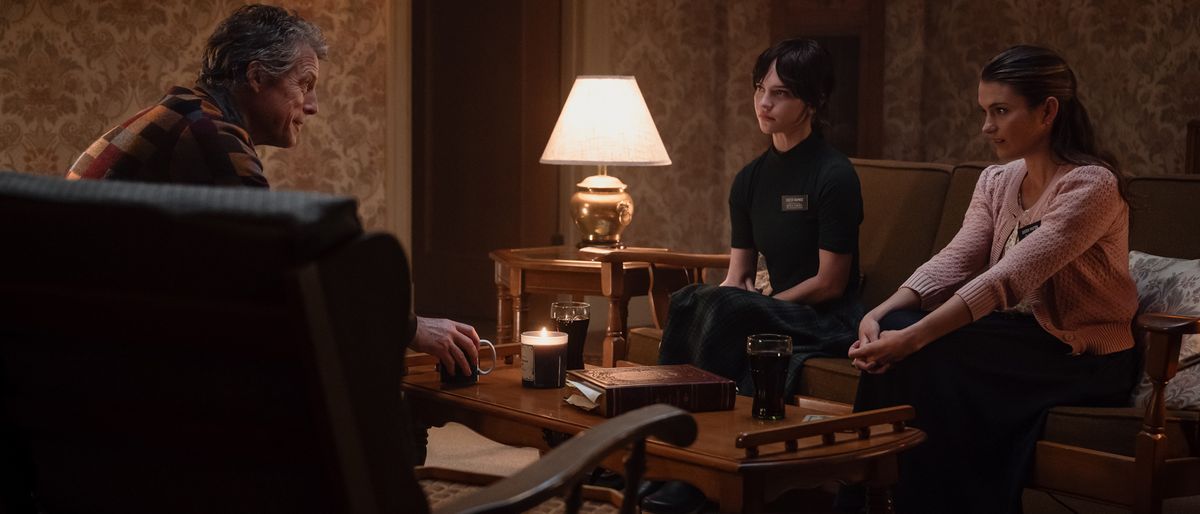
In response to the leak of the Pentagon Papers, the federal authorities teeters on the precipice of abolishing freedom of the press. It takes a noble staff of journalists and their initially meek feminine boss, whose household legacy is on the road, to step up and cease them. The Post chronicles how their stand helped shield the First Amendment, established the Washington Post as a political-reporting powerhouse, and provoked the Nixon administration to take determined measures. While the movie chronicles the previous, it’s additionally clearly talking to the current, hoping to not so subtly remind audiences of the significance of the continuing battle to report the reality within the age of “alternative facts.”
Meryl Streep stars as Washington Post writer Kay Graham, who was solely given the reins to her father’s paper after her husband’s suicide. Tom Hanks performs the Post’s govt editor, Ben Bradlee, who leads a ragtag editorial staff on the paper. Through a unusual collection of occasions, the Post’s group of reporters get their palms on the Pentagon Papers—which reveal that the U.S. authorities knew for years that the Vietnam War was unwinnable—and proceed to publish them even after the New York Times is silenced by an injunction. While the Times first broke the story, the Post pulls a Spartacus to face beside them, regardless of the potential authorized and monetary penalties for Graham and her workers. The Post in the end serves as a prequel of types to All the President’s Men, as the ultimate scene depicts the break-in on the Watergate Hotel.
This well-structured movie presents context for its story by mentioning touchstones of U.S. historical past, in addition to utilizing monologues from the film’s feminine characters for example a tradition wherein Graham had each motive to doubt herself or keep silent. While this comes off as a bit ham-fisted, it makes her ascension to self-assuredness and her staff’s ethical victory really feel all of the extra triumphant.
It’s a tall order to make typing, studying, printing, and sorting paperwork seem to be high-stakes motion, and director Steven Spielberg does a pleasant job of utilizing gentle, sound design, rating, and movement to construct pressure. The Post additionally strikes a charmingly well-balanced tone. The script by co-writers Liz Hannah and Josh Singer (the latter of whom additionally co-wrote the Oscar-winning unique screenplay for the newspaper film Spotlight) units up stunning, well-timed bursts of comedy to interrupt up the heaviness and moralizing of the story.
The Post is an ensemble drama greater than anything, which sadly may shortchange stars Streep and Hanks come awards time. But make no mistake: Their performances anchor the film. Both convey a lot with only a twinkle of their eyes, and Streep is ready to talk her character’s inside journey from innocent housewife to champion of the reality with simply her facial gestures. The forged is stacked with recognizable faces, although only some really get their second within the solar—particularly, TV stars Bob Odenkirk as scrappy reporter Ben Bagdikian and Matthew Rhys as Daniel Ellsberg, the jaded Defense Department contractor behind the leaks.
While the movie has a gifted forged and energetic execution, its largest asset may be its timeliness. Firstly, Graham is portrayed as a lady whose potential was boxed in by the instances she lived in. But, given the chance, she shows braveness in instances of disaster far past what the narrow-minded white males surrounding her within the boardroom, the eating membership, and the inventory trade are able to summoning. In a four-way cellphone name between Graham, Bradlee, and two members of her board, Graham embodies the phrase that grew to become a feminist battle cry in 2017: “She was warned. She was given an explanation. Nevertheless, she persisted.” And The Post makes it clear that she was proper to not again down.
Secondly, conventional stalwarts of journalism, together with the Post and the Times, have been below assault from each the federal government and monetary forces lately. Though it comes off considerably heavy-handed and may lack the endurance of different traditional journalism movies, The Post efficiently serves as a stirring reminder that the press serves the ruled, not the governors, and is essential to our democracy.
Source


